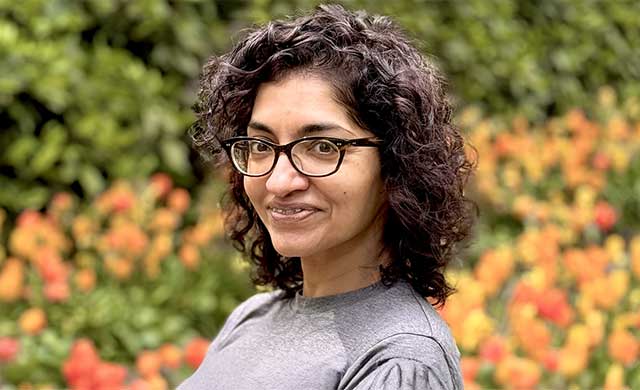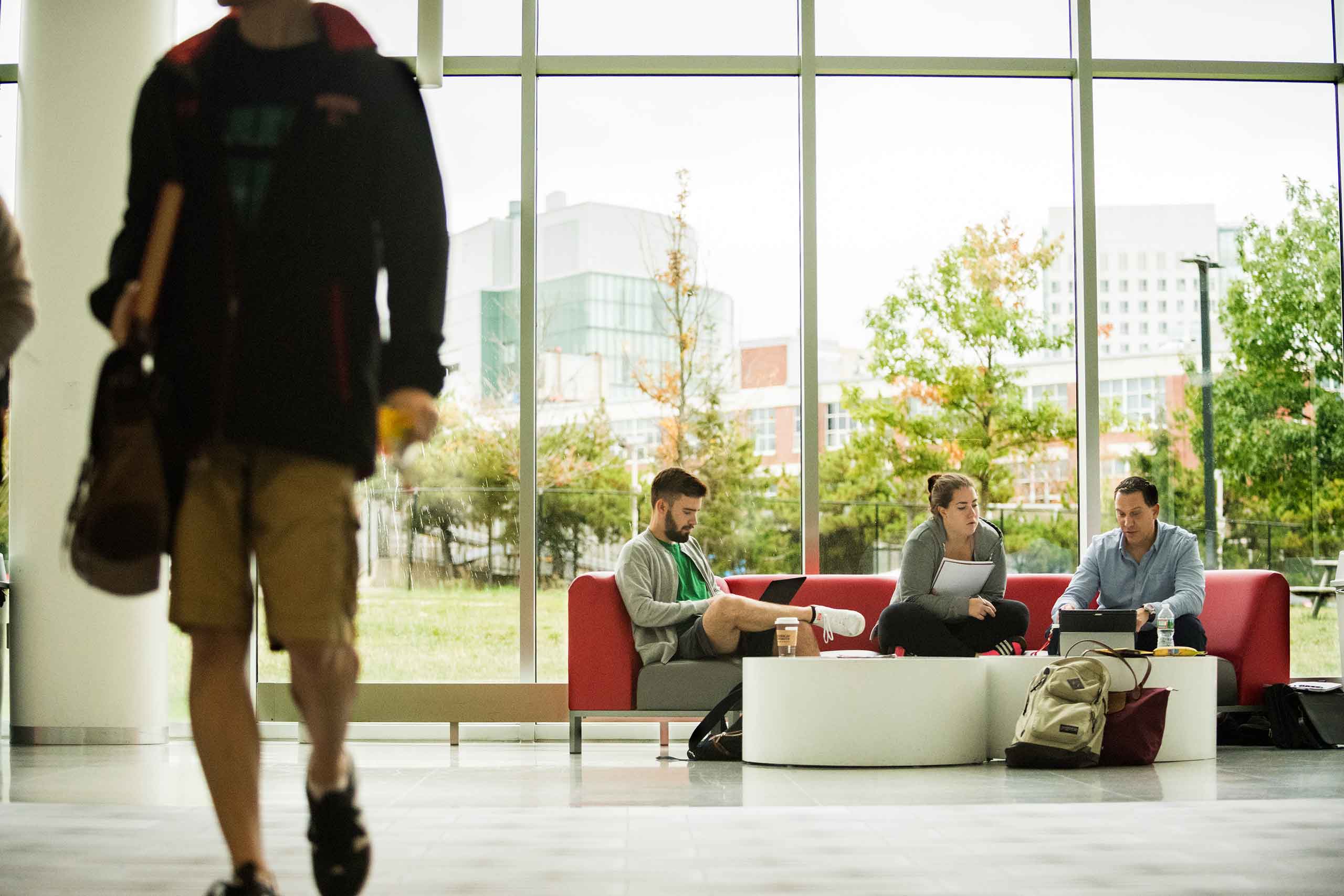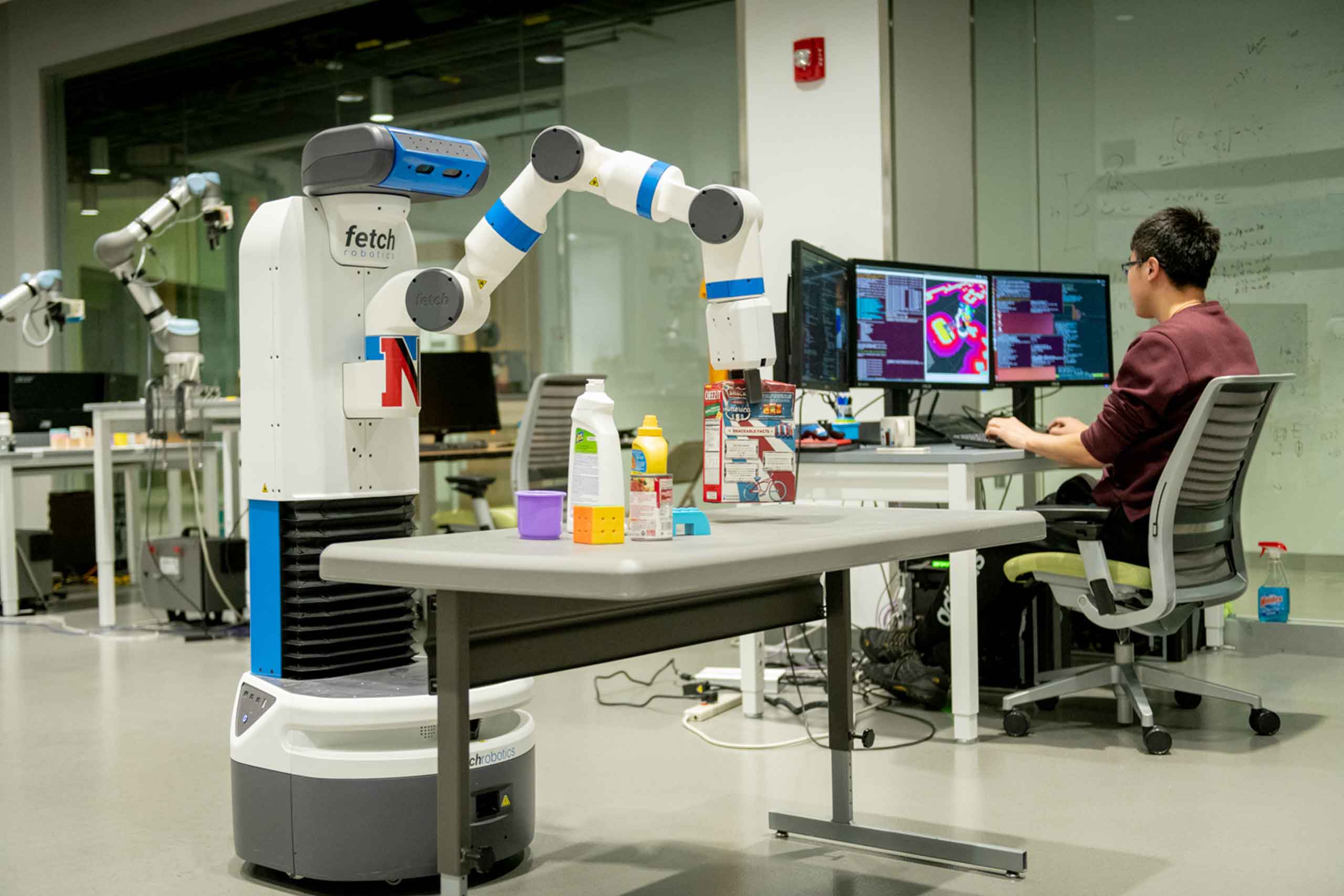

Amal Ahmed

Professor, Associate Dean of Graduate Programs
Boston

Amal Ahmed
Professor, Associate Dean of Graduate Programs
Boston



Professor, Associate Dean of Graduate Programs
Boston

Professor, Associate Dean of Graduate Programs
Boston



Professor, Associate Dean of Graduate Programs
Boston

Professor, Associate Dean of Graduate Programs
Boston
she/her/hers
Amal Ahmed is associate dean of graduate programs and a professor of computer science at the Khoury College of Computer Sciences at Northeastern University. Within programming languages, she is particularly interested in semantics and type systems for reasoning about imperative code, concurrency, security, compiler transformations, and provenance.
Before joining Northeastern, she was an assistant professor at the School of Informatics and Computing at Indiana University for three years, a research assistant professor at the Toyota Technological Institute at Chicago for three years, and a postdoctoral fellow at Harvard University for two years. She received her doctorate in computer science from Princeton University in 2004.
Ahmed’s research involves programming languages and compiler verification with a focus on type systems, semantics, secure compilation, gradual typing, and software contracts. Her work scaling the logical relations proof method to realistic languages with various features was widely used for the correctness of compiler transformations, soundness of advanced type systems, and verification of fine-grained concurrent data structures. Ahmed recently developed the first proof architecture for verifying multi-pass compilers in the presence of inter-language linking of compiled code.
Ahmed has served on numerous program committees in her field of programming languages, including ACM SIGPLAN Symposium on Principles of Programming Languages, ACM SIGPLAN International Conference on Functional Programming, IEEE Symposium on Logic in Computer Science, and the European Symposium on Programming. She has been a regular invited lecturer at the annual Oregon Programming Languages Summer School and twice served as co-organizer. She is a member of IFIP WG 2.8 (Working Group on Functional Programming) and has served on the steering committees of ACM SIGPLAN International Conference on Functional Programming, Programming Languages Mentoring Workshop, and ACM SIGPLAN Workshop on Types in Language Design and Implementation. Her awards include an NSF Career Award, a Google Faculty Research Award, and a George Van Ness Lothrop Fellowship.
she/her/hers
Amal Ahmed is associate dean of graduate programs and a professor of computer science at the Khoury College of Computer Sciences at Northeastern University. Within programming languages, she is particularly interested in semantics and type systems for reasoning about imperative code, concurrency, security, compiler transformations, and provenance.
Before joining Northeastern, she was an assistant professor at the School of Informatics and Computing at Indiana University for three years, a research assistant professor at the Toyota Technological Institute at Chicago for three years, and a postdoctoral fellow at Harvard University for two years. She received her doctorate in computer science from Princeton University in 2004.
Ahmed’s research involves programming languages and compiler verification with a focus on type systems, semantics, secure compilation, gradual typing, and software contracts. Her work scaling the logical relations proof method to realistic languages with various features was widely used for the correctness of compiler transformations, soundness of advanced type systems, and verification of fine-grained concurrent data structures. Ahmed recently developed the first proof architecture for verifying multi-pass compilers in the presence of inter-language linking of compiled code.
Ahmed has served on numerous program committees in her field of programming languages, including ACM SIGPLAN Symposium on Principles of Programming Languages, ACM SIGPLAN International Conference on Functional Programming, IEEE Symposium on Logic in Computer Science, and the European Symposium on Programming. She has been a regular invited lecturer at the annual Oregon Programming Languages Summer School and twice served as co-organizer. She is a member of IFIP WG 2.8 (Working Group on Functional Programming) and has served on the steering committees of ACM SIGPLAN International Conference on Functional Programming, Programming Languages Mentoring Workshop, and ACM SIGPLAN Workshop on Types in Language Design and Implementation. Her awards include an NSF Career Award, a Google Faculty Research Award, and a George Van Ness Lothrop Fellowship.











